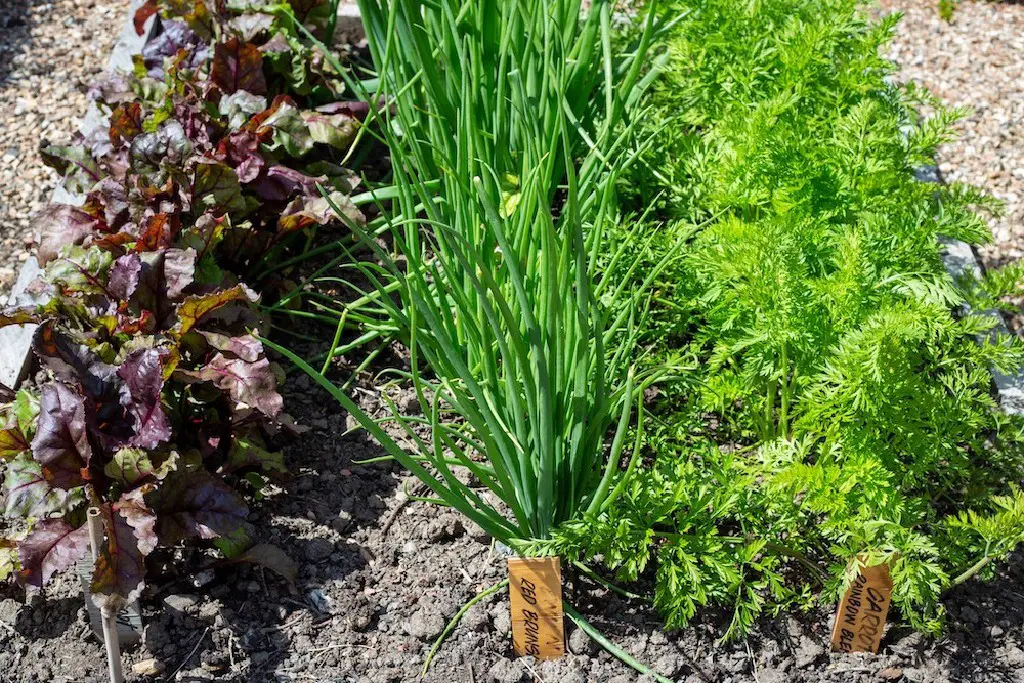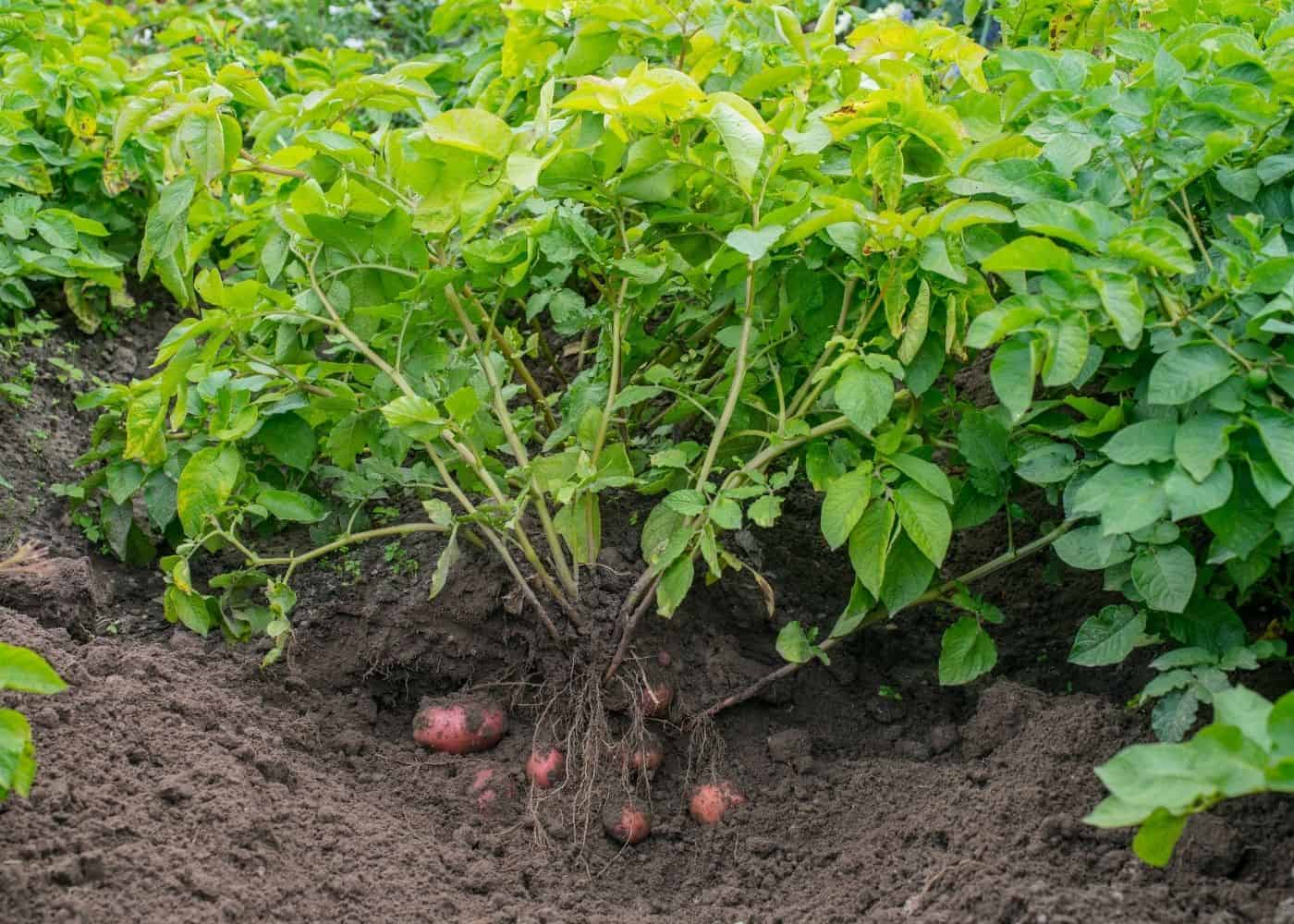Garlic Chives: The Ultimate Companion Plant
Garlic Chives: The Ultimate Companion Plant
Garlic chives are a versatile herb that can be used in a variety of dishes, from salads to stir-fries to soups. They are also a great companion plant for other vegetables, as they can help to repel pests and improve the flavor of nearby plants.
In this blog post, we will discuss the benefits of companion planting with garlic chives, as well as some of the best plants to grow alongside them. We will also provide some tips on how to plant and care for garlic chives.
Benefits of Companion Planting with Garlic Chives
There are many benefits to companion planting with garlic chives. Here are a few of the most notable:
- Repels pests. The strong scent of garlic chives can help to repel a variety of pests, including aphids, cabbage worms, and Japanese beetles. This can help to protect your other plants from damage and reduce the need for chemical pesticides.
- Improves flavor. The flavor of garlic chives can actually enhance the flavor of other vegetables. For example, planting garlic chives near tomatoes can help to improve the sweetness of the tomatoes.
- Attracts pollinators. The flowers of garlic chives are attractive to pollinators, such as bees and butterflies. This can help to increase the pollination of your other plants, which can lead to a better harvest.
Best Plants to Grow with Garlic Chives
There are many different plants that can be grown alongside garlic chives. Here are a few of the best options:
- Carrots. Garlic chives can help to repel carrot flies, which can damage carrots.
- Cabbage. Garlic chives can help to repel cabbage worms, which can be a major pest of cabbage.
- Tomatoes. As mentioned above, garlic chives can help to improve the flavor of tomatoes.
- Peppers. Garlic chives can help to repel aphids, which can be a problem for peppers.
- Potatoes. Garlic chives can help to repel potato beetles, which can damage potatoes.
How to Plant and Care for Garlic Chives
Garlic chives are relatively easy to plant and care for. Here are some tips:
- Plant garlic chives in full sun or partial shade.
- Garlic chives prefer well-drained soil.
- Water garlic chives regularly, especially during hot weather.
- Fertilize garlic chives with a balanced fertilizer once a month during the growing season.
- Harvest garlic chives as needed.
Conclusion
Garlic chives are a versatile and beneficial herb that can be used in a variety of dishes. They are also a great companion plant for other vegetables, as they can help to repel pests and improve the flavor of nearby plants.
If you are looking for a way to improve your garden, consider planting garlic chives. They are easy to grow and care for, and they can offer a variety of benefits.
Garlic chives are a delicious and versatile herb that can be used in a variety of dishes. They are also a great companion plant for many other vegetables and herbs.
Some of the best companion plants for garlic chives include:
- Carrots: Garlic chives can help to repel carrot fly larvae, which can damage carrots.
- Tomatoes: Garlic chives can help to improve the flavor of tomatoes and deter pests such as aphids.
- Potatoes: Garlic chives can help to prevent potato scab, a common fungal disease.
- Broccoli: Garlic chives can help to improve the flavor of broccoli and deter pests such as cabbage worms.
- Cabbage: Garlic chives can help to improve the flavor of cabbage and deter pests such as cabbage loopers.
For more information about garlic chives companion plants, I recommend visiting Gardenia Inspiration. This website has a comprehensive list of companion plants for garlic chives, as well as information on how to plant and care for these herbs.
FAQ of garlic chives companion plants
Question 1: What are the best companion plants for garlic chives?
Answer: Garlic chives are a good companion plant for many other herbs, vegetables, and flowers. Some of the best companion plants for garlic chives include:
- Alliums: Chives are an Allium, so you can plant them alongside members of that same family, like onions, leeks, scallions, and garlic since they require similar care.
- Carrots: Chives help to repel carrot flies, which can be a major pest for carrots.
- Tomatoes: Chives help to improve the flavor of tomatoes and can also help to repel pests.
- Strawberries: Chives help to repel slugs and snails, which can be a problem for strawberries.
- Potatoes: Chives help to repel potato beetles, which can be a major pest for potatoes.
Question 2: What are the benefits of companion planting with garlic chives?
Answer: There are several benefits to companion planting with garlic chives. These include:
- Repels pests: Garlic chives have a strong scent that can help to repel pests, such as aphids, cabbageworms, carrot flies, slugs, and snails.
- Improves flavor: Chives can help to improve the flavor of other vegetables, such as tomatoes, carrots, and potatoes.
- Attracts pollinators: Chives are a good source of nectar for pollinators, such as bees and butterflies.
- Improves soil health: Chives help to improve soil health by adding nitrogen and other nutrients.
Question 3: What are some of the challenges of companion planting with garlic chives?
Answer: There are a few challenges that can be associated with companion planting with garlic chives. These include:
- Competitive growth: Garlic chives can be a bit aggressive, so it is important to plant them with plants that have similar growth habits.
- Allelopathy: Garlic chives release allelochemicals, which can suppress the growth of some plants. It is important to avoid planting garlic chives with plants that are sensitive to allelochemicals.
- Diseases and pests: Garlic chives can be susceptible to the same diseases and pests as other Alliums. It is important to take steps to prevent the spread of diseases and pests.
Question 4: How do I plant garlic chives with other companion plants?
Answer: When planting garlic chives with other companion plants, it is important to consider the following factors:
- Plant spacing: Garlic chives need about 6 inches of space between plants.
- Sun exposure: Garlic chives need full sun.
- Soil type: Garlic chives prefer well-drained, loamy soil.
- Watering: Garlic chives need regular watering, especially during the first year.
Question 5: Where can I find more information about garlic chives companion planting?
Answer: There are a number of resources available to learn more about garlic chives companion planting. These include:
- Books: There are a number of books available on the topic of companion planting. Some popular titles include "The Vegetable Gardener's Companion" by Louise Riotte and "Carrots Love Tomatoes" by Craig LeHoullier.
- Websites: There are a number of websites that provide information about garlic chives companion planting. Some popular websites include the Old Farmer's Almanac, Gardener's Path, and Fine Gardening.
- Gardening clubs: There are many gardening clubs that can provide information about garlic chives companion planting. These clubs can be a great resource for learning from other gardeners and getting advice on specific planting problems.
Image of garlic chives companion plants
5 different images of "garlic chives companion plants" from Pinterest:
- Garlic chives and tomatoes: Garlic chives can help to repel pests that damage tomatoes, such as aphids, spider mites, and whiteflies.
- Garlic chives and carrots: Garlic chives can help to improve the flavor of carrots and can also help to deter pests such as carrot rust flies.

- Garlic chives and strawberries: Garlic chives can help to repel slugs and snails, which can be a major problem for strawberries.

- Garlic chives and potatoes: Garlic chives can help to repel the Colorado potato beetle, which is a major pest of potatoes.

- Garlic chives and cabbage: Garlic chives can help to repel cabbage moths, which can damage cabbage plants.

Post a Comment for "Garlic Chives: The Ultimate Companion Plant"